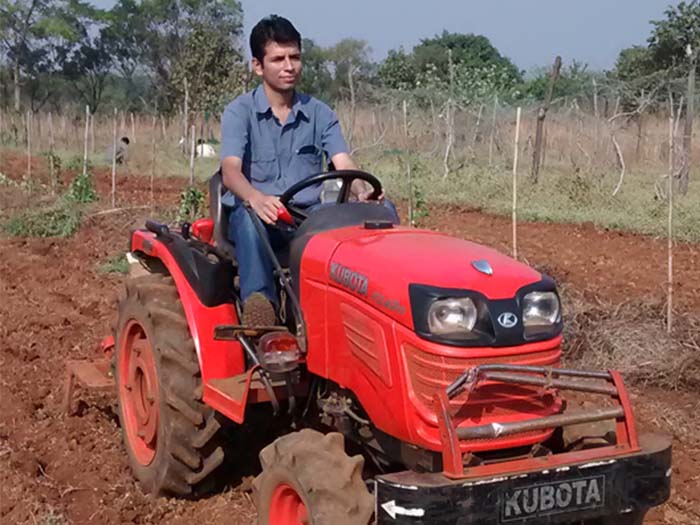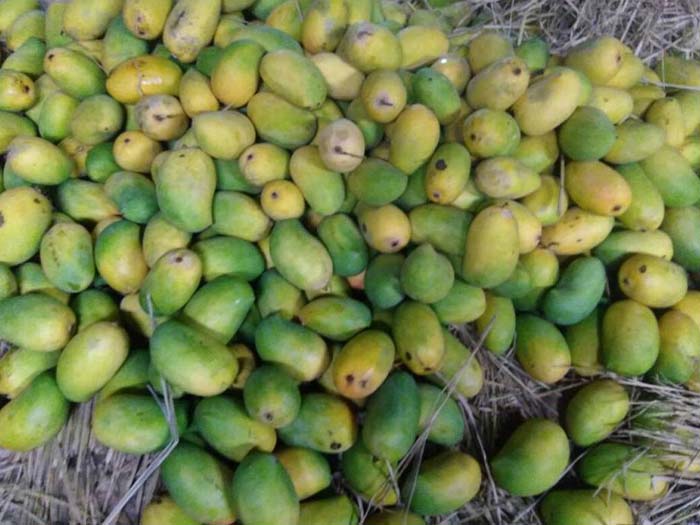In Conversation with Aakash Thakkar, Owner, The Farmer
The organic farming movement has been gaining momentum in the recent years across the globe with more and more consumers opting for organic produce. According to the FIBL and the International Federation of Organic Agriculture Movements survey 2017, the positive trend is continuing with 11 percent increase in market growth in the United States, the world’s largest organic market. Organic sales in the US totaled around $47 bn in 2016, marking the first time that the American organic food market has broken through the $40 bn mark. India continues to be the country with the highest number of organic producers at 600,000, followed by Ethiopia (582,200) and Mexico (200,039). [1] [2]
As the organic market continues to grow, it’s no wonder that companies are jumping on the organic food bandwagon. However, what is most inspirational is that several individuals who are passionate about the environment are making changes at the grassroots level by taking up organic farming as a passion and later turning it into a lucrative business. These individuals are changing the way we think about food, nutrition and the environment in general.
One such inspiring story is that of the Thakkars who own a 70-acre farm in Karjat on the outskirts of Mumbai, India. They grow more than 60 varieties of fruits and vegetables. Their farm also boasts of 450 mango trees and 35 free-gazing Gir cows from Gujarat which provide not only the milk they deliver but also the fertilizer for the farms. Their venture called “The Farmer” delivers fresh organic produce across Mumbai. [3]

The farm tractor is used for plowing, tilling, disking, harrowing, planting, & similar tasks. Photo Credit: Shutterstock
We caught up with Aakash Thakkar, owner of The Farmer and asked him about the change he is making in the organic farming space in India.
OF: What inspired you and your family to get into organic farming?
AK:
My father, Rajendra Thakkar, is a practicing lawyer but he has always been extremely passionate about farming. He started farming in a small way at our Karjat farm in 1988 and soon, our entire family – my mother, my sister and I – joined in. For the last six years, we have taken it on as a full-time venture.
A few years ago, we launched The Farmer, a delivery service for organic produce. Our customers contact us via our e-commerce website as well as Whatsapp, Facebook, email and so on. We are on all major online marketing platforms.We also host our own farmer’s market in Chowpatty in South Mumbai every Sunday. We are part of the Farmer’s market in Juhu. We are scouting for few other places.
OF: What has the customer response been to The Farmer?

Mangos are an all-time favorite summer fruits in many parts of the world. Photo Credit: Anonymous
AK: In the last two-three years, the organic food sales have gained momentum. It is growing almost 40 to 50% annually. We cater to almost two and a half thousand families in Mumbai and we see the numbers almost doubling every year.
OF: What were the challenges you faced as an entrepreneur in the organic farming space in India?
AK:
The biggest challenge has been the lack of awareness of organic food and why it is good for you and the environment. It is quite an uphill task to make people understand the benefits of organic food.
Most 50-year-olds will tell us that they have been fine and healthy all these years without eating organic food. They do not want to change the way they buy and eat produce after all these years. At The Farmer, we encourage our customers to come and visit our Karjat Farm so that they can see how we go about farming our produce. This builds trust in our customers. We also encourage that customers get to know the farmers. That way, the customers know exactly what they are paying for and where their food comes from.
OF: Have you received any negative customer feedback which changed the way you did business?
AK:
Our biggest change has been in how we package our products. One of our customers pointed out that we were delivering produce in plastic bags, which was clearly not in line with our organic business sentiment.
We took the feedback seriously and slowly but surely, we started shifting everything to packaging in a paper. We deliver products in reusable plastic crates. Right now, 98% of our produce is delivered in paper. There are a couple of items which are wet produce and we cannot avoid plastic.
OF: As a changemaker, can you tell us where you think you are driving the biggest change in organic farming in India?
AK:
The sad thing I find is that the new generation is ashamed to be a farmer’s child. They do not want to continue the legacy of farming. I am proud that I am able to continue my father’s legacy.
At The Farmer, we are trying our best to motivate the families of our farmers to continue with farming by providing them training as well assuring them that we will buy back the produce. Right now, they are selling it on the open market where they are hardly getting any monetary gain. They do not understand the fuss about organic farming and so, they need monetary incentives to continue. We are actively working with the farmers educating them and assuring our customers too that they get the fresh produce in less than 24 hours of harvesting it.
We are also educating children about organic food through schools because we feel it is better if we start educating them young. The benefits of organic food will hopefully be embedded in their DNA!
